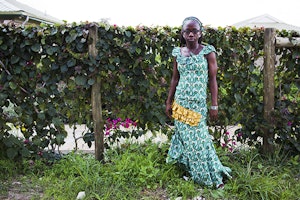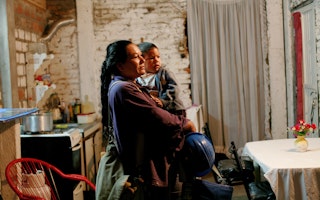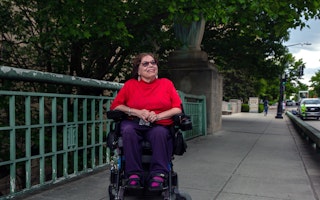Q&A: An Inclusive Revolution
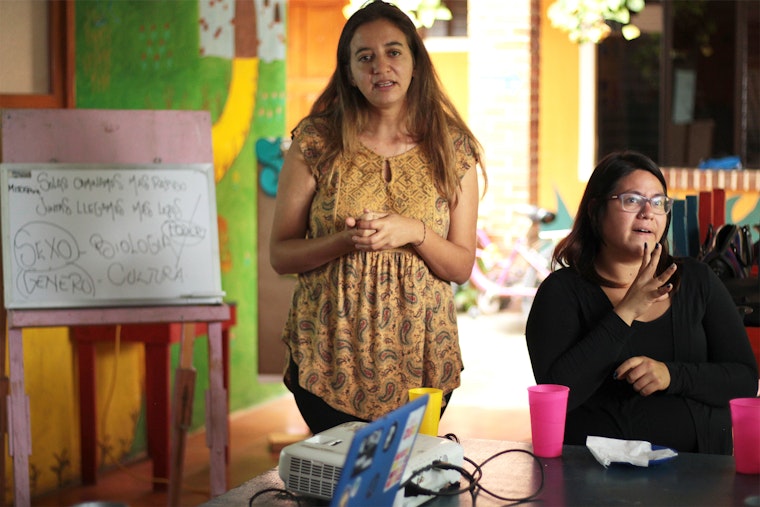
In Guatemala, women with disabilities face outrageous rates of violence. One local collective, Mujeres Con Capacidad de Soñar a Colores, is pushing for systemic reforms through organizing, research, and art. Open Society Foundations’ Rachele Tardi recently spoke with Open Society’s Feminist Fellow Valentina Vargas Ricca and collective members Floridalma Bocel and Vivian Quisquiná about their work.
What is life like for women with disabilities in Guatemala?
Our lives are very complicated in Guatemala, especially for women with disabilities in rural areas who have little access to education, work, health care, and other services. We are more vulnerable to violence because of the multiple and intersectional oppressions that we face. For example, services that provide support for victims of gender violence, such as physical accessibility and sign language, are rarely accessible to us. Also, in traditional families, we are seen as of “lesser value” to the family, as we’re not expected to have a job or leave the family and therefore become a “burden.”
Furthermore, while Guatemala did ratify the Convention on the Rights of Persons with Disabilities, there aren’t any domestic laws that specifically protect us. For example, the national law intended to curtail violence against women does not mention at all violence against women with disabilities, which we know must be addressed in specific ways. Although there is no specific data on violence against women with disabilities in Guatemala, we know from other countries that 80 percent of women with disabilities are victims of violence and that women with disabilities are four times more likely to experience sexual violence than women without disabilities.
Our own research processes have shown us that all of us have experienced violence and know of other women with disabilities who have experienced violence, from being forced to stay home by our families who hide our mobility aids to being sexually assaulted by strangers. We also consider the way in which we are excluded from education and workspaces to be a form of violence, another experience that is shared by all the women in our collective.
Because of these reasons, we cannot access all our full human rights and are excluded from participating in different political, economic, and social spaces, especially if we are Indigenous.
What issues did you explore as an Open Society Feminist Fellow?
When we began our research, we were interested in understanding more about violence against women with disabilities in Guatemala. Because traditional research processes seem to us very distant from our voices and our lives, we sought alternative research and distribution methods, where we can be full participants of all the processes and really understand the results.
For example, our first research project was a weeklong gathering of 14 women with disabilities (most of them young women) using the Theater of the Oppressed methodology. This methodology allows groups to play out unjust situations experienced in order to seek concrete alternatives for change: a tool that gives us the ability to respond to and resolve conflicts. In our gathering, we explored our experiences and the different types of violence that women with disabilities face in their daily lives. We then made a collective decision to make a theater play on two main forms of violence: exclusion from education and access to work. The results and process of our work can be seen in our documentary Vernos Florecer.
We have also had small research projects that focus on specific rights and how they are or are not accessible to women with disabilities, such as digital rights and the right to social and political participation. We share our results through a series of comics and podcasts called Guardianas de la Diversidad (Guardians of Diversity), to raise awareness about the situation.
Through this process, we found that even the few women with disabilities who have access to computers and smartphones were left out of education processes and other basic services during the pandemic because of the lack of accessibility and/or reasonable accommodations in online spaces. We also found many cases of exclusion from decision-making spaces in general and also within organizations for persons with disabilities. Most importantly, experiences of exclusion and discrimination are not unique to one woman, but consistent patterns found in the experiences of women with disabilities in general.

How did the pandemic affect your work and fellowship?
Initially, the pandemic had a negative impact on women with disabilities and their families, and our collective’s projects. We could not present the Theater of the Oppressed play that we worked so hard to create. There was a strong emotional impact on women who had started to participate in our research projects with us. For the first time, they were leaving their houses and suddenly, because of the pandemic, they had to go back to always being at home. Additionally, life at home became harder, as people lost jobs and sources of income, which also reduced access to health care and other essential services.
We had to rethink our projects and plans, which ultimately strengthened our work. For example, by being forced to work digitally, we provided women in the collective with phones and training on using them, which has a long-term impact on access to communication and reducing isolation. We executed a COVID-19 response project where we were able to reach 26 women in different communities, who are now part of our network and continue to participate with us politically. The pandemic also gave Mujeres Con Capacidad de Soñar a Colores more visibility, as we were able to participate in different online spaces learning about others, making connections and sharing our work. Finally, we created different types of content to communicate our issues and demand our rights, like a documentary, podcasts, and comics.
What inspires you to pursue your work?
Since 2018, we have seen our collective grow and reach more women with disabilities: we began as a group of five friends and now have over 36 women involved in our projects. Each woman’s experience is unique and in working together we create realities that are more inclusive and where we all feel more comfortable. We have seen the impact of individual empowerment and how, little by little, the women in our collective are strengthening their voice and making our collective knowledge and opinions heard. Some people who were at first nervous about presenting our collective in front of peers are now speaking at international webinars about the work we do.
In fact, the women we work with are motivated to learn more about their own rights and participate in organizing activities for more women with disabilities. Some of the women who participate in our COVID-19 emergency project of family gardens are actively seeking out connections of their own with other local organizations to support the entire group with, for example, seeds.
One story that stands out the most is that of Flory, who did not leave her house at all before she met the collective. However, by inviting her to join us and providing all her accessibility needs, she participated in the collective and now represents us in national and international spaces, motivating more women with disabilities to get involved in knowing and defending their rights and sharing our experiences and opinions in different spaces. Through her active participation, Flory has been able to gain training and work opportunities, such as creating and managing our blog. She is an upcoming leader in Guatemala’s disability and gender movement with incredible potential to change the realities of countless women with disabilities in our country.
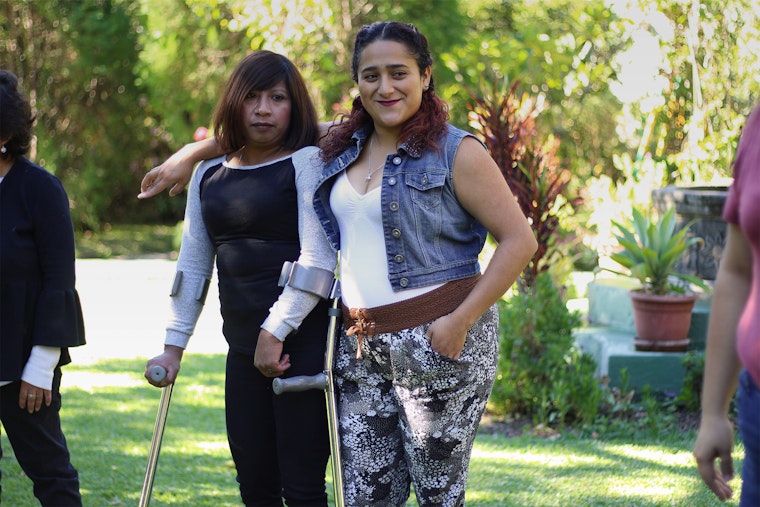
What role do you believe the arts play in supporting women with disabilities?
While the work with each woman is personal and individualized, art is a way through which every woman can show her reality, feelings, and opinions. Women who have participated in our processes dance, sing, and draw.
In addition to being very accessible, art allows us to share the lived experiences of women with disabilities with society. Other people are drawn to our work and through it learn about the barriers and violence we experience, and they often join us in our fight.
How can we learn and work with the disability movement in Guatemala to increase solidarity and power with other movements in Guatemala and worldwide?
The revolution will be accessible! Women with disabilities should not be left out of any social or community decision-making. Our work has shown that, if given the chance, women with disabilities have a lot to share and to say about issues that affect them, and this should be considered in all spaces.
The first step is being open to having a conversation about how we can be included, and we’re happy to participate! We know that inclusive societies will only be created if we all participate in the process.
